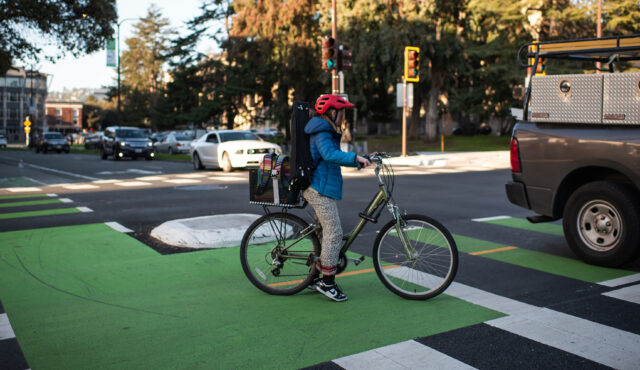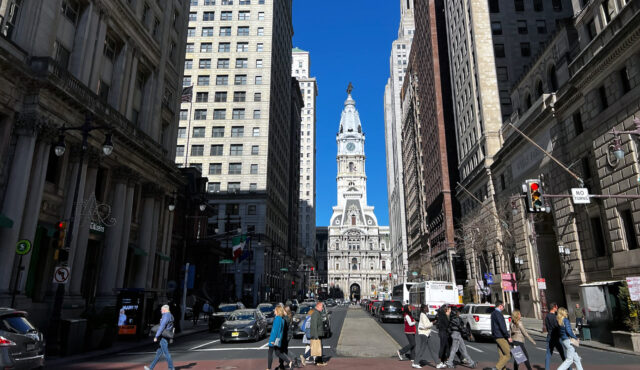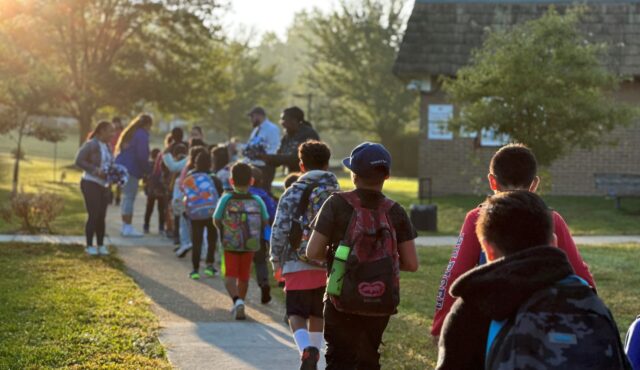
Today’s Guardian includes an excellent long read by Peter Baker, “Collision course: why are cars killing more and more pedestrians,” that highlights how what are billed as safety benefits of new technology in cars often just turn out to be performance benefits. “Better” brakes might sound safer, but perhaps not when they lead to you driving faster and braking later.
This has been going on, either deliberately or inadvertently, for the 35 years I’ve been in this field. Seat belts, crumple zones, air bags, anti-lock brakes, collision avoidance—the list goes on—all promised to be revolutionary life-saving technologies, which in isolation they may be. But as long as these innovations enable people to drive more, faster, and with less responsibility and more distraction, and roadway design further enables this by being ever-more forgiving, the inevitable consequence is that people not traveling in cars—pedestrians, bicyclists, motorcyclists—are going to die in increasing numbers.
Where I think Baker’s article—and his sources—pulls a punch or two is in failing to call out our collective unwillingness to acknowledge and act upon this reality. Road safety experts aren’t—or certainly shouldn’t be—flummoxed by the rise in pedestrian deaths. They are simply unwilling or unable to challenge our car-dependent norms and confront the consequences of doing what it takes to eliminate fatal and serious traffic crashes. Real action to curb pedestrian deaths would mean slowing traffic down, allowing people to cross the road while cars (like, all of them) are actually stopped, eliminating right-turn-on-red, and reallocating road space to provide separated bikeways and better sidewalks. The tools to eliminate deaths and injuries are all there, but the political will and public support (or at least the perception of it) are not.
Our newly launched push to reframe the way we think about transportation planning and design to be about ethics, equity, and empathy rather than only the traditional engineering, education, and enforcement speaks to the heart of this challenge. Remarkable technological advances in vehicles absolutely should help improve safety for everyone, but the needle will not move if we expect them to make up for unethical and inequitable roadway design and careless, carefree driving behavior.
There is a moral imperative to do that because almost 40,000 people a year die in traffic crashes in the United States. That alone should be reason enough to act. But if that isn’t enough, consider today’s news that more than 250 million children worldwide will be obese by 2030, an increase of 60% over today’s already shocking number; the existential threat of climate change; the geo-political costs of oil dependence; the continued toll of air and noise pollution; and the destructive and inequitable impact of car-dependent growth on our communities…and maybe there’s enough reason to build our cities and the transportation systems that serve them differently?



